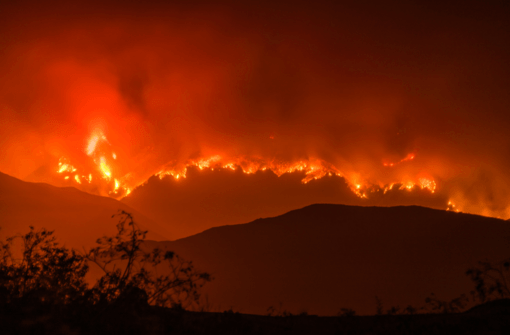
Photo by Glenn Beltz | CC by 2.0
The recent fires in California offer lessons that every westerner should pay attention to.
First forest reduction projects will not preclude large wildfires or save communities when there is low humidity, high temperatures, drought, and high winds. Just as tropical rainforests thrive on rain which we can’t stop, western ecosystems thrive on wildfire, and it is climate/weather that drives large wildfires not “fuels”. We cannot log our way out of growing wildfire induced home losses.
Just like it would foolish and ineffective to try to kill all mosquitoes, trying to preclude wildfires by widespread logging is a fool’s errand. Instead of killing mosquitoes across the landscape, a reasonable person puts on mosquito repellent, and covers up their exposed skin, and maybe installs screens on their homes to keep out the annoying insect. A similar approach is needed for wildfire. Instead of forest reduction projects (read logging), we should focus our efforts on making our homes and communities more resistant to the wildfires which are inevitable.
Second, homes burning down can be prevented in most cases by the implementation of fire-wise policies. Things like metal roofs, removal of grass by homes, and other measures can go a long way towards keeping a home intact even in the face of a major wildfire.
However, these policies must be implemented at the community level. If your neighbor’s home is a fire trap, even if you have done all the proper fire wise policies, your house is vulnerable. Structure fires are much hotter and burn longer than a forest fire, and in many cases, what you find is a single home ignites and then like dominos falling other homes catch on fire. This is exactly what is occurred in California communities like Santa Rosa.
I have visited many of the communities around the West where wildfires have consumed houses including Summer haven above Tucson, AZ, Walden Canyon by Colorado Springs, CO, Wenatchee in Washington, Lake Arrowhead near San Bernardino, CA, Los Alamos, NM, South Lake Tahoe, CA, and others. It’s always the same thing. What you find is burnt out foundations surrounded by green trees. What this means is that embers, not a wall of flames, set individual homes on fire, which then ignited their neighbor’s homes.
If you want to save your community, you must have mandatory fire wise policies that are enforced. Many of the larger towns in Western Montana including Helena, Missoula, Butte, Bozeman, and other mountain towns are vulnerable to the same situation as has burned Santa Rosa and other communities in California. If a fire ignites in the surrounding mountains with high winds, burning embers will rain down on the homes. If these homes are not fire-proofed, entire neighborhoods could burn to the ground.
The entire antagonism to government policies, regulations, and the “it’s my property and I can do whatever I want” is an impediment to rational and reasonable policies. But when your neighbor fails to protect their home, they are demonstrating a lack of community value and a selfish attitude towards the rest of the town.
Beyond changing policies about fire-proofing communities, the other major change we need is to recognize the growing threat of wildfire is caused in part by warming climate. And it is not too much hyperbole to suggest that politicians like Donald Trump and Scott Pruitt along with the rest of the Republican Party that collectively seem to ignore science on climate change are helping to burn your home down.
The ultimate cause of rising wildfire severity and extent is not due to fire suppression, lack of logging or other excuses given by the timber industry and their lackeys in Congress including Senator Daines and Congressman Gainforte. The Republican agenda that Donald Trump, Scott Pruitt at the EPA and Ryan Zinke at Interior, refuse to acknowledge is that human-caused climate change is occurring, and that policies like burning coal, withdrawing from the Paris Climate Accord, and even more logging (which studies have shown to increase wildfire spread in many instances).
Climate change is real. Wildfires are here. The most immediate thing we can do as westerners are fire-safe our communities and towns. Next, elect people who pay attention to climate science. Finally, realize that wildfire in the forest is a good thing that maintains healthy forest ecosystems. Wildfire in your neighborhood is a bad thing that can be reduced or prevented with reasonable building codes and mandatory fire-wise regulations.